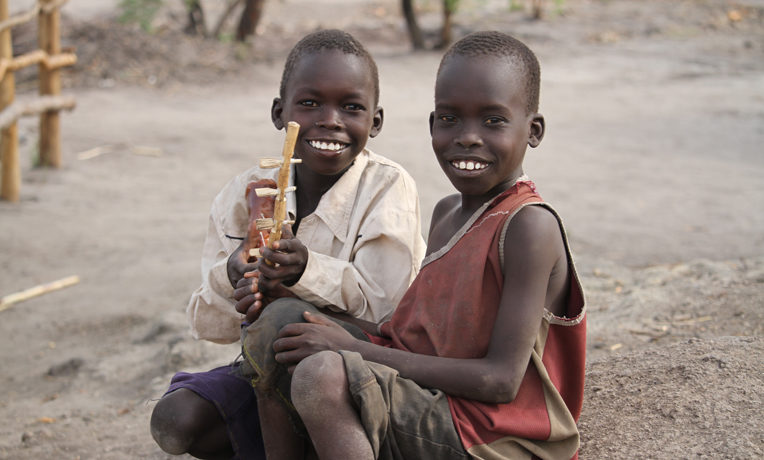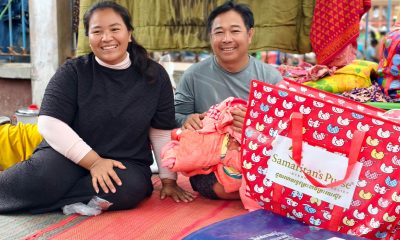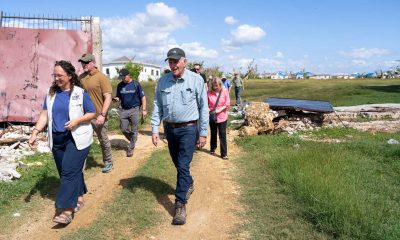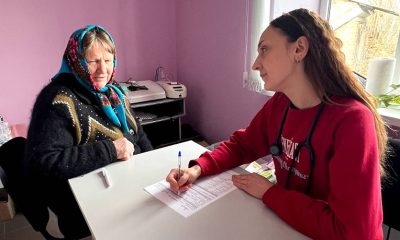Violence and conflict in South Sudan continues to drive refugees to seek safety in the borders of Uganda.
The refugee crisis in Africa continues to grow every day. Increasing violence, conflict, and starvation has resulted in hundreds of thousands of people fleeing South Sudan, making it the world’s fastest growing refugee crisis. More than 1.6 million South Sudanese, a 10th of the population, are seeking peace and security outside the country.
The numbers of refugees arriving every day is tremendous. It is especially overwhelming in Uganda, where between 1,000 and 5,000 people arrive every day. Around 86 percent of those who arrive are women and children. More than 800,000 refugees, about half of all South Sudanese refugees, are now in Uganda, and more are expected to arrive.
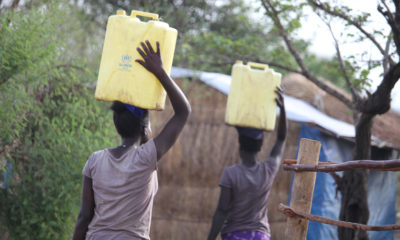
Water is a constant need in the refugee settlement camps. Women are often in charge of gathering water.
One of the world’s largest refugee settlement camps is Bidibidi in Uganda. It currently houses at least 270,000 refugees from South Sudan, all of whom arrived in the last months of 2016. The overflow camp is Imvepi, where thousands of refugees arrive daily, and there is a constant need for food, water, and shelter for its population of 56,000.
The conflict in South Sudan continues. Scared and desperate, families have fled South Sudan with minimal possessions and whatever family members were able to make the long journey.
A Farmer Once Again
When Alex Kenyi first arrived at the Bidibidi Refugee Settlement in Uganda, he had just the clothes on his back, his wife, and his four children. He left everything in South Sudan. As Alex and his family began to rebuild their lives in the Bidibidi, he was nervous about how he would support his family in a new country and environment.
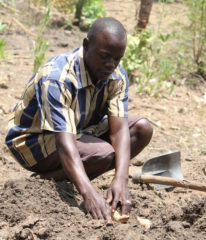
Alex Kenyl tending to his garden in the Bidibidi Refugee Settlement Camp in Uganda.
As part of a Samaritan’s Purse program, Alex received sweet potato vines, maize, and bean seeds for planting on a plot of land provided by the Ugandan government. Alex is no stranger to farming. At one time, he was a farmer in South Sudan before the increasing violence left him unable to plant and gather his harvest. Although some of his seeds dried up due to a long dry season in Uganda, Alex still managed to secure a harvest to provide for his family.
“I was able to harvest maize,” Alex said. “My children were happy to eat freshly roasted maize. My family gained a healthy meal. The harvest took us some time, but we never missed a meal. You know, health comes when we feed well.”
Alex and his family were able to maintain their health because of the nourishment they received from the food he was able to grow.
“When our bodies are strong, malaria will not put us down, and we will not spend money to buy medicine,” Alex said. “When there is food in the home, we don’t fight. There is peace in the home because my wife and children have food.”
The Importance of Water
Water and sanitation also remain large concerns. As many people gather in a small space, with limited hygiene and access to clean water, cases of dysentery, cholera, diarrhea, typhoid, and other communicable diseases are on the rise.
For 20-year-old Keji Joyce, water was hard to come by when she first arrived in Bidibidi after fleeing South Sudan with her husband and baby girl.
“When we first arrived here, we had nothing at all, not even a drop of water,” Keji said. “We started walking a long distance to get water from a stream. The water was dirty and contaminated.”
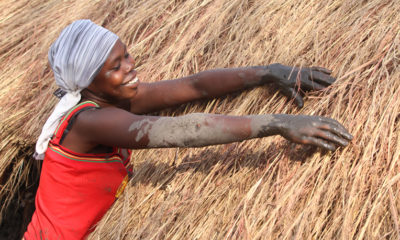
Keri Joyce building her home by mixing soil and water.
She and her small family would spend up to three days without bathing in order to save water. As a woman, it was uncomfortable.
When a borehole was built by her home, she was relieved. She can now bathe every day, build her house by mixing water and soil, avoid stomach aches caused by contaminated water, and receive water without waiting in long lines. She is even a member of the water user committee for one of the boreholes built by Samaritan’s Purse.
The challenges facing refugees from South Sudan are immense, but families are beginning to find hope again as they rebuild their lives in the fields of Uganda.

